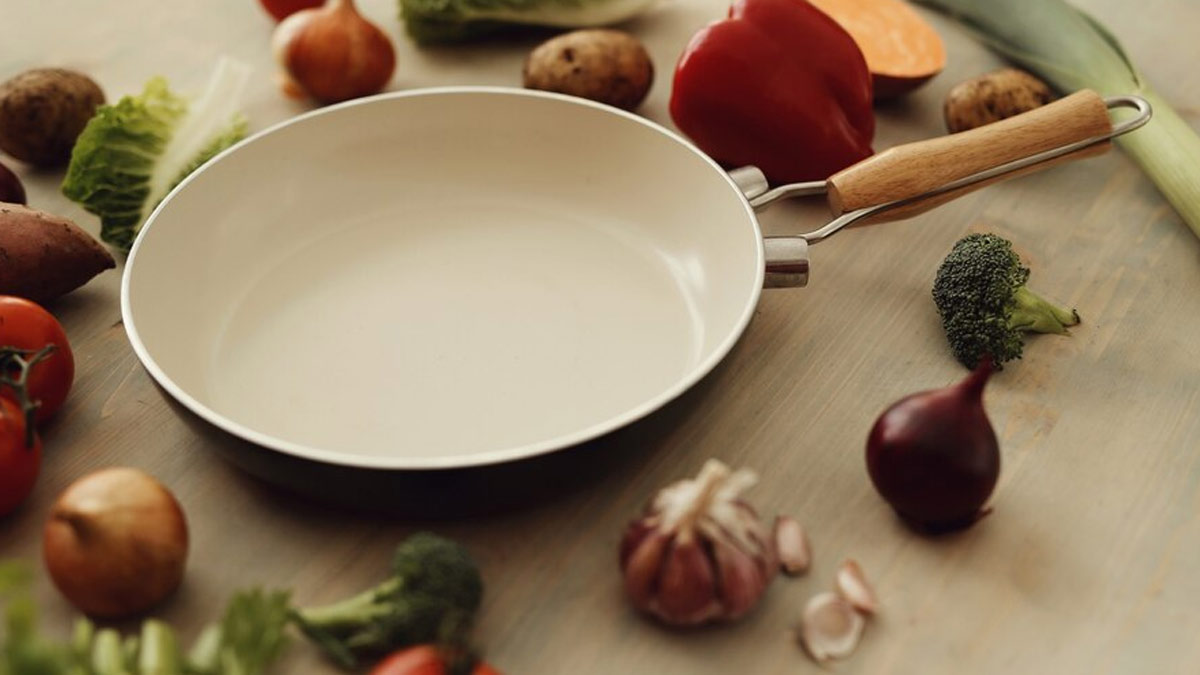
The use of ceramics dates back to at least 24,000 BC, according to archeologists. These materials have remained precious to human civilization for a long time, valued for their durability and versatility. In modern times, while non-stick, aluminium, and stainless steel have dominated the cookware market due to their convenience and widespread availability, ceramic cookware and utensils are slowly but steadily gaining popularity. They’re not only beautiful, but they're also said to have certain health benefits. To confirm the same, we spoke to an expert, who answered whether the claims were true.
Table of Content:-
Also Read: What Is Teflon Flu? Symptoms To Watch Out For
How Safe Are Ceramic Cookware?

Noida-based dietitian Aarti Kalra said, "Ceramic cookware is generally considered safe due to its absence of PTFE (polytetrafluoroethylene) and PFOA (perfluorooctanoic acid), common in traditional non-stick pans."
"Made from natural materials like silica, it poses minimal health risks if it is high quality," the expert added, suggesting, however, that lower-quality ceramics may use unsafe glazes.
Other alternatives, like stainless steel, are durable and non-reactive, with few health concerns. Cast iron, on the other hand, is robust and non-toxic but can react with acidic foods and may leach iron, which is usually harmless but can be a concern for some.
Additionally, traditional non-stick (PTFE) is mostly PFOA-free but can release harmful fumes if overheated, Kalra noted.
Do Ceramic Cookwares Pose Health Risks?

According to the expert, high-quality ceramic cookware is typically free from hazardous substances like PTFE, PFOA, lead, and cadmium. However, some substandard products may use unsafe glazes containing lead, cadmium, or other additives like barium and strontium.
To ensure safety, dietitian Kalra recommended purchasing from reputable manufacturers who disclose materials and adhere to safety standards.
Moreover, avoid cookware with damaged or scratched surfaces, as this can expose harmful materials. Most importantly, check for safety certifications from regulatory bodies like the Food and Drug Administration (FDA).
The FDA guidelines warn consumers of the potential health risks associated with certain types of ceramicware or pottery.
These include ceramic items that are handmade with a crude appearance or irregular shape, antique, damaged, or excessively worn, purchased from flea markets or street vendors, or of unknown origin.
Additionally, brightly decorated pieces in orange, red, or yellow colours may contain lead-based pigments, posing a health hazard, the health body notes.
Also Read: You Must Use Only Stainless Steel Utensils, Here Is Why
Does Non-Stick Coating On Ceramic Cookware Impact Safety?
When it comes to safety, ceramic non-stick coatings are believed to be safer because they do not contain PTFE or PFOA.
"They are much cleaner in that they do not release toxic compounds into the air, but they must also be correctly used because they do degrade," said Kalra.
The bottom line is that ceramic non-stick coatings are safer than conventional PTFE coatings, given that essential precautions and instructions, as well as non-heat overcooking, are observed.
Precautions To Take When Using Ceramic Utensils

Here are expert-recommended guidelines to keep ceramic cookware safe and durable:
Use proper utensils: Avoid metal utensils to prevent scratching and damaging the non-stick surface.
Temperature management: Use medium to low heat to avoid damaging the coating, and preheat gradually to prevent thermal shock.
Cleaning and maintenance: Hand wash with a soft sponge and mild detergent; avoid using dishwashers unless specified by the manufacturer.
Avoid thermal shock: Do not expose hot cookware to sudden temperature changes, like washing in cold water, to prevent warping or cracking.
Proper storage: Stack carefully with a soft cloth or paper towel between items to prevent scratches.
Lastly, follow the manufacturer’s care instructions for the best results.
Also watch this video
How we keep this article up to date:
We work with experts and keep a close eye on the latest in health and wellness. Whenever there is a new research or helpful information, we update our articles with accurate and useful advice.
Current Version